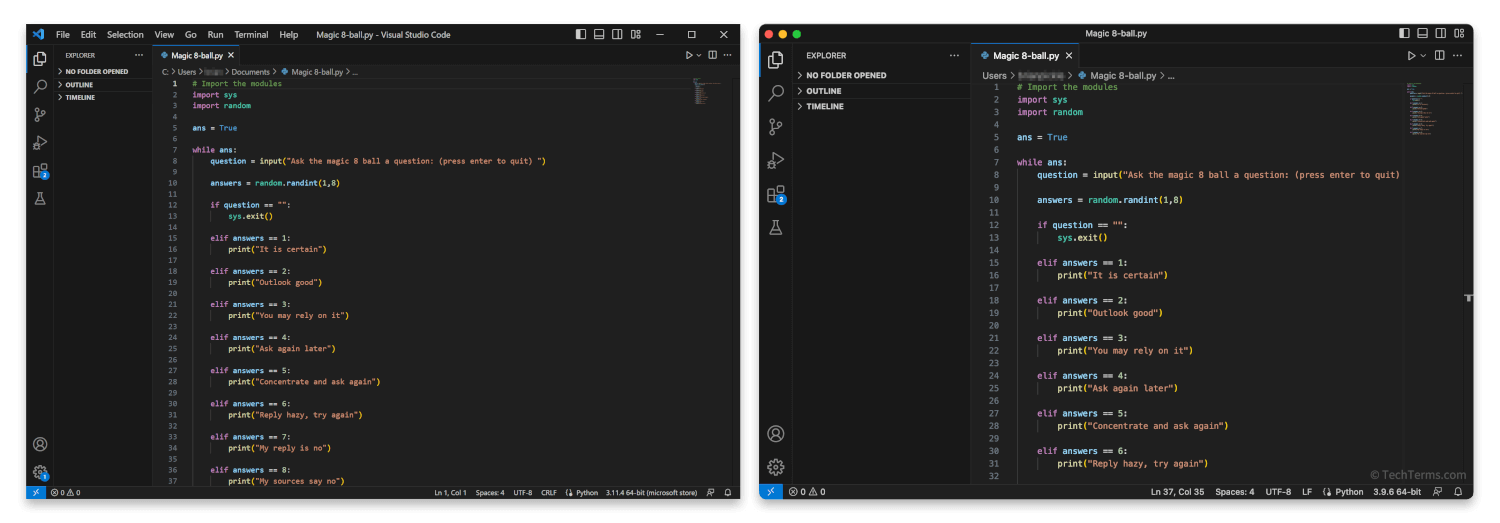Electron
Electron is an open source, crossplatform application framework. Software developers can use Electron to create apps using a mix of web technologies like HTML, CSS, and JavaScript instead of platform-specific programming languages. Since it's a crossplatform framework, developers can create apps for Windows, macOS, and Linux using a single codebase.
The Electron framework is built upon two open source software packages — Chromium and Node.js. Chromium is a browser engine (also used by web browsers like Google Chrome and Microsoft Edge) that renders an app's user interface. Node.js is a JavaScript runtime environment that executes JavaScript code and provides a direct interface with system APIs. Since Chromium and Node.js themselves are crossplatform, they provide app developers with a way to write their apps once using HTML, CSS, and JavaScript.
While Electron can help make app development easier, its use does have some downsides. Since every Electron app needs to include both the full Chromium and Node.js packages in the executable file, they require more storage space and memory than a native app. These requirements increase if you run multiple Electron apps, since each app includes its own copy of Chromium and Node.js. Additionally, security updates to Chromium might not make it to an Electron app promptly, potentially leaving it vulnerable to exploits already discovered and patched in the full web browser.
NOTE: Popular apps built using Electron include Microsoft Teams, Slack, Trello, Discord, and Visual Studio Code.

 Test Your Knowledge
Test Your Knowledge